Lawmakers weigh in on special needs issues
By DANIELLE LYNCH
In Chester County, the special-needs children population and special-education costs continue to rise. In 2000, there were 36,781 boys and 34,671 girls with disabilities between the ages of 5 to 15 years of age, according to the U.S. Census Bureau. Six years later, the male population with disabilities rose to 37,178 and 35,023 for females, according to the Census Bureau’s American Community Survey.
In the area of funding, special-education allocations in Chester County have increased in total by approximately 74 percent over the past five years. Back in the 2003-2004 school year, the total special-education allocation of all 12 school districts was $86.8 million. The total special-education allocation at the beginning of this school year was $151.4 million.
Earlier this month, there was some debate over who allegedly cares more for special-needs children in the presidential campaign. Alaska Gov. Sarah Palin, a mother of a son with Down syndrome, said that if elected she’d be a “friend and advocate” to special-needs families. U.S. Sen. Joseph R. Biden Jr., D-Del., responded that Palin did not support stem-cell research.
County, state and federal lawmakers talked to the Daily Local News about the issues surrounding special needs in Chester County and the debate over special-needs children in the presidential campaign.
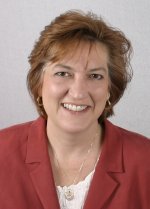 Chester County Commissioner Kathi Cozzone Chester County Commissioner Kathi Cozzone
Democratic Commissioner Kathi Cozzone said the county contracts services with several agencies to help with special-needs children. Among these services are the student assistance program, the Right to Education Task Force, the Local Interagency Council, Home and School Council and Youth and Family Teams.
“There are quite a number of programs the county funds,” Cozzone said.
In addition, there are a lot of local support groups and national chapters for families that have children with special needs, Cozzone said. Residents can contact the county’s Department of Human Services, she said.
Cozzone said the county commissioners have voted consistently to fund and support special-needs issues.
“There should be a focus on special needs,” Cozzone said of the discussion over special needs in the presidential campaign. “I’m not sure there should be a debate but mandates need to be funded and research needs to be done to support these families with special- needs children.”
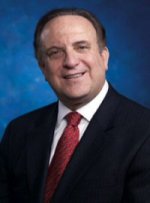 State Sen. Andrew Dinniman, D-19th, of West Whiteland State Sen. Andrew Dinniman, D-19th, of West Whiteland
State Sen. Andrew Dinniman, D-19th, of West Whiteland, said he believes the significant increase of those diagnosed with autism has been a major factor for the increase in special- education costs.
“When anything increases significantly, the state has an obligation to help with the school districts,” Dinniman said.
This year’s overall education budget has been the largest since 1991, said Dinniman, who is a member of the Senate’s Education Committee.
To help these families, Dinniman said he recommends they receive information from the Chester County Intermediate Unit, the county’s Department of Human Services and the Department of Health.
Dinniman is currently drafting two pieces of legislation to help college students with disabilities, in particular those who have Attention-Deficit/Hyperactivity Disorder (ADHD). If the legislation passes, it would allow college students with ADHD to stay on their parent’s health insurance longer while taking a lighter course load, he said.
Students with ADHD “can succeed quite well but may not be able to take a full load of courses,” Dinniman said.
In reference to the special-needs debate in the presidential campaign, “my hope is there would be a discussion that would bring about awareness and more assistance programs,” Dinniman said.
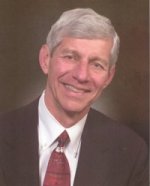 State Sen. Edwin “Ted” B. Erickson, R-26th, of Drexel Hill State Sen. Edwin “Ted” B. Erickson, R-26th, of Drexel Hill
The federal government stipulates what needs to be covered and the state tries to make up the difference in funding, according to state Sen. Edwin “Ted” B. Erickson, R-26th, of Drexel Hill.
Erickson said school districts that become successful with assisting special-education students tend to become a magnet for other families with special-needs children.
“That just isn’t fair,” Erickson said.
On the issue of a lack of awareness for the less diagnosed disabilities, Erickson said autism has become a good model.
“I’m always an advocate for funding, not only for special education but also for human services,” Erickson said.
In addition, he introduced Senate Bill 1397 which is part of an ongoing effort to obtain monies owed from the School District of Philadelphia to four local school districts for special-education services.
Erickson said he’s pleased that Gov. Palin has said she’d be an advocate for special-needs children.
State Sen. Dominic F. Pileggi, R-9th, of Chester
School districts have an obligation to provide education to special-needs children, said state Sen. Dominic F. Pileggi, R-9th, of Chester. He said the issue of rising special-education costs is another aspect of the ongoing dispute of costs in education.
“On every level of expense, there can be a debate,” said Pileggi, the state Senate majority leader.
Pileggi said it’s easier to come by research and information about disabilities in Southeastern Pennsylvania compared to other areas of the state.
In the past, Pileggi said he was a strong advocate for the state’s Autism Insurance Act which was signed into law by Pennsylvania Gov. Ed Rendell this past July. In addition, he is the No. 2 sponsor of Senate Bill 1397 which is part of an ongoing effort to obtain monies owed from the School District of Philadelphia to four local school districts for special-education services.
On the issue of the presidential special-needs debate, Pileggi said, “I think it’s a healthy discussion to have.” He continued, “I think the average citizen can see through the political rhetoric and see that Gov. Palin has a special-needs child and has a special perspective on what it means for federal funding.”
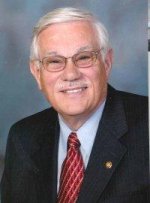 State Rep. Arthur D. Hershey, R-13th, of West Fallowfield State Rep. Arthur D. Hershey, R-13th, of West Fallowfield
The state is the leader in the area of special education funding, according to state Rep. Arthur D. Hershey, R-13th, of West Fallowfield.
“There never seems like there’s enough funding,” Hershey said.
He said there are advocacy groups out there for families that have children with disabilities.
In the past, Hershey was a strong supporter of the state’s Autism Insurance Act, which was signed into law back in July. The law provides $36,000 a year for Applied Behavior Analysis and other treatments for those under 21 with an autism spectrum disorder. Private insurers are required to provide this new coverage beginning July 2009.
On the issue of stem-cell research, which came up during the presidential campaign, Hershey said he does not support it. But he does support an effort to provide for umbilical cord blood banking which he introduced in House Bill 874. He said it’s important to let expecting mothers know that storing cord blood “is far better than stem-cell research.”
“We’re just learning that it’s the thing to do,” Hershey said.
 State Rep. Barbara McIlvaine Smith, D-156th, of West Chester State Rep. Barbara McIlvaine Smith, D-156th, of West Chester
State Rep. Barbara McIlvaine Smith, D-156th, of West Chester, who is majority chairwoman of the Special Education Subcommittee, said legislators are working on the special-education funding formula.
Locally, McIlvaine Smith said if a child has a learning disability, it’s important for the parents to be informed about special-education laws and ask teachers and administrators for help.
In addition, there are online organizations called listservs that parents can join to get help from other parents, said McIlvaine Smith, who is also the mother of a special-needs child that passed away.
McIlvaine Smith said there’s also a strong focus on transition, especially for 21-year-olds. There are also efforts for a Special Needs Assistance Program called SNAP which will allow families to save money for post-secondary training and education and vocational training, she said.
She said parents, school districts, the state and federal governments all need to be partners in the area of special education. McIlvaine Smith, a former school teacher, said she believes every child is a special-needs child because all children learn a little different.
On the issue of this coming up in the presidential debate, she said, “to get into a stem-cell research debate is spinning it out of control.”
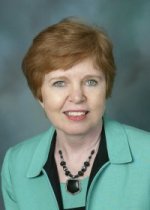 State Rep. Carole Rubley, R-157th, of Tredyffrin State Rep. Carole Rubley, R-157th, of Tredyffrin
There has been a $16.8 million increase over last year’s budget for special education, according to state Rep. Carole Rubley, R-157th, of Tredyffrin. She said part of the problem with special-education costs is that legislation comes from Washington, D.C. without input from the individual states.
The Autism Insurance Act is “a big step in the right direction,” Rubley said. She said that the autism efforts should be an example for those families who have children with less frequently diagnosed disabilities.
In the past, Rubley said she’s supported initiatives to help increase funding for special- needs issues including autism.
On the issue of special needs becoming part of the presidential campaign, she said, “I’m not sure we should tie stem-cell research and special-needs children into one topic – to me they’re two separate issues.”
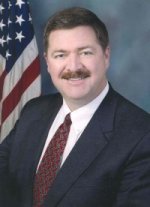 State Rep. R. Curtis “Curt” Schroder, R-155th, of Downingtown State Rep. R. Curtis “Curt” Schroder, R-155th, of Downingtown
Special education funding issues have been a battle for some time, according to state Rep. R. Curtis “Curt” Schroder, R-155th, of Downingtown.
“We think the federal government needs to live up to its original funding commitment,” Schroder said.
On the issue of a lack of awareness for the less diagnosed disabilities, Schroder said the autism parents became organized and had results.
“Parents need to make their needs known to legislators at the state level,” he said.
In the past, Schroder has worked on helping with special education payment problems at private schools such as the Vanguard School.
Another special-needs issue is transitioning young people between the ages of 14 to 21 into the community, according to Schroder. He said there have been efforts, although not widespread, such as the Mission for Educating Children with Autism’s Preparing Adolescents for Adult Life program in Downingtown.
On the presidential campaign special-needs issue, Schroder said, “It’s like any other issue with seemingly endless needs and limited resources – that’s where there’s conflict that can make it controversial.” He said the key is to use funding to help get resources for these special-needs children.
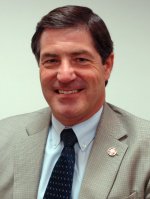 Congressman Jim Gerlach, R-6th, of West Pikeland Congressman Jim Gerlach, R-6th, of West Pikeland
Congressman Jim Gerlach, R-6th, of West Pikeland, said he’s constantly advocating for increases in special-education funding. He’s supported legislation that would help bring the federal funding level for the Individuals with Disabilities Education Act up to 40 percent. He said that over the years there has been ups and downs in the federal funding for special education.
“We need a better informational effort locally,” Gerlach said.
Autism has been an important issue for Gerlach and he’s supported efforts both federally and previously when he worked at the state level. Specifically, he worked closely with the Mission for Educating Children with Autism.
“I don’t know how anyone with a straight face could say Gov. Palin doesn’t care about special-needs children,” Gerlach said. “It’s pretty evident she has a focus on special-needs children and their families.”
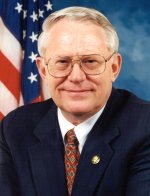 Congressman Joseph R. Pitts, R-16th, of East Marlborough Congressman Joseph R. Pitts, R-16th, of East Marlborough
“Unfunded mandates are a real problem for school districts,” said Congressman Joseph R. Pitts, R-16th, of East Marlborough. “We need to provide money to school districts to allow for flexibility.”
Pitts said he’s consistently voted for increases in federal funding for mandates such as the Individuals with Disabilities Education Act.
For families who feel there’s a lack of awareness about special-needs issues and information about their child’s diagnosis, Pitts said resources are available with the United States Department of Education and Centers for Disease Control and Prevention. He said school districts need to make information about programs available to the parents.
“I’m saddened to see Sen. Biden attack Gov. Palin’s commitment of being a dedicated mother with a special-needs child,” Pitts said. “She’s the real deal.”
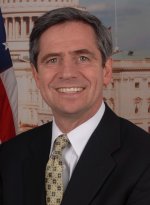 Congressman Joseph Sestak, D-7th, of Edgmont Congressman Joseph Sestak, D-7th, of Edgmont
Congressman Joseph Sestak, D-7th, of Edgmont, said he’s supported efforts that would bring federal funding for the Individuals with Disabilities Education Act up to 40 percent.
In addition, Sestak worked to improve treatment for autistic children of military families through the National Defense Authorization Act.
Sestak said he’s worked on two amendments for the federal No Child Left Behind Act which include a mandate that a national study be done to look at proper implementation of modified assessments. And secondly, he’s worked on a mandate that would require highly qualified special-education teachers who must be certified in a least one Annual Yearly Progress assessed area, he said.
On the presidential debate issue, he said, “I believe the issue is not who cares more for special-needs children – we should be working together.”
To contact staff writer Danielle Lynch, send an e-mail to dlynch@dailylocal.com.
|
